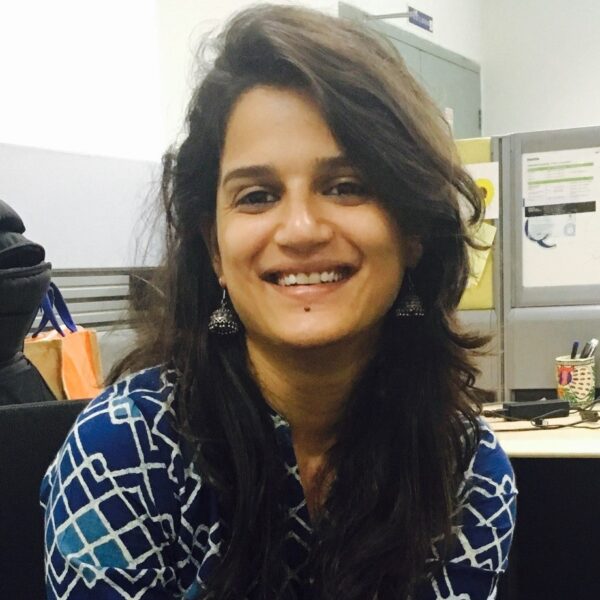Home » Our People » Aamrapali Sharma

About the partner
After her schooling, Aamrapali chose to focus on Economics: first a degree and then a Post Graduate Diploma in Business Economics. She began her career with Aon Hewitt as a Senior Compensation Analyst. Her focus was data-driven analysis for job matching, compensation benchmarking and benefits analysis for the US market. Continuing in the same field she worked with Deloitte as a Senior Compensation Specialist. This role allowed her to expand her expertise from analysis to design, creating models and performance metrics to improve job satisfaction.
In 2018, she gave up her corporate career to find job satisfaction. She enrolled as a Teach For India Fellow, taking on responsibility for the holistic development of a class of fourth-graders in a government school. Here, she applied her corporate experience to create strong group work structures in the classroom and varied experiences outside it. She participated in the Student Council and initiated two student-led projects, one of which aimed to transform the school into a ‘Zero Waste School.’
My Journey at SVP
Growing up in a small town in Uttar Pradesh, I always wondered: “Why don’t the domestic help’s children go to school?” “Why are the streets full of garbage?” “Where do stray animals eat?” “Why don’t I see stars anymore?” and so on. I never got a convincing answer.
After school, I opted for Economics to explore the ‘Why’ behind these questions; why don’t we have enough for everyone and is there anything we can do about that? Development economics gave me some excellent insights, but I couldn’t figure out what to do with the knowledge I had gathered. Like most others, I joined corporate life. This helped me develop many professional skills but failed to inspire and motivate me.
After several years, I took a Teach for India fellowship. The fellowship came as a hard wave of practicality to my theoretical knowledge. It deepened my understanding of the education sector, income inequity, lack of skills and awareness and more. I had the chance to make a difference; to create a conducive learning environment in the school: an environment of accountability, ownership and collaboration among students.
Covid was another eye-opener. It helped me connect with students at a different level, learning about family issues and their problems beyond school. I realized there were many issues I couldn’t tackle alone. This is when I started questioning my role in the bigger picture of the social sector.
I got interested in the SVP model – working with different NGOs, supporting different causes. SVP has given me an opportunity to understand the development sector using a wider lens, to learn from people with deeper and broader experiences.
I am a very data-driven person. When my social sector experience began, I realized that organisations in this sector are not run that way. Learning their ways while bringing my value systems and strengths to them, I find that the collaboration has been fruitful for me and the Investees. Joining SVP has really fulfilled my purpose.

